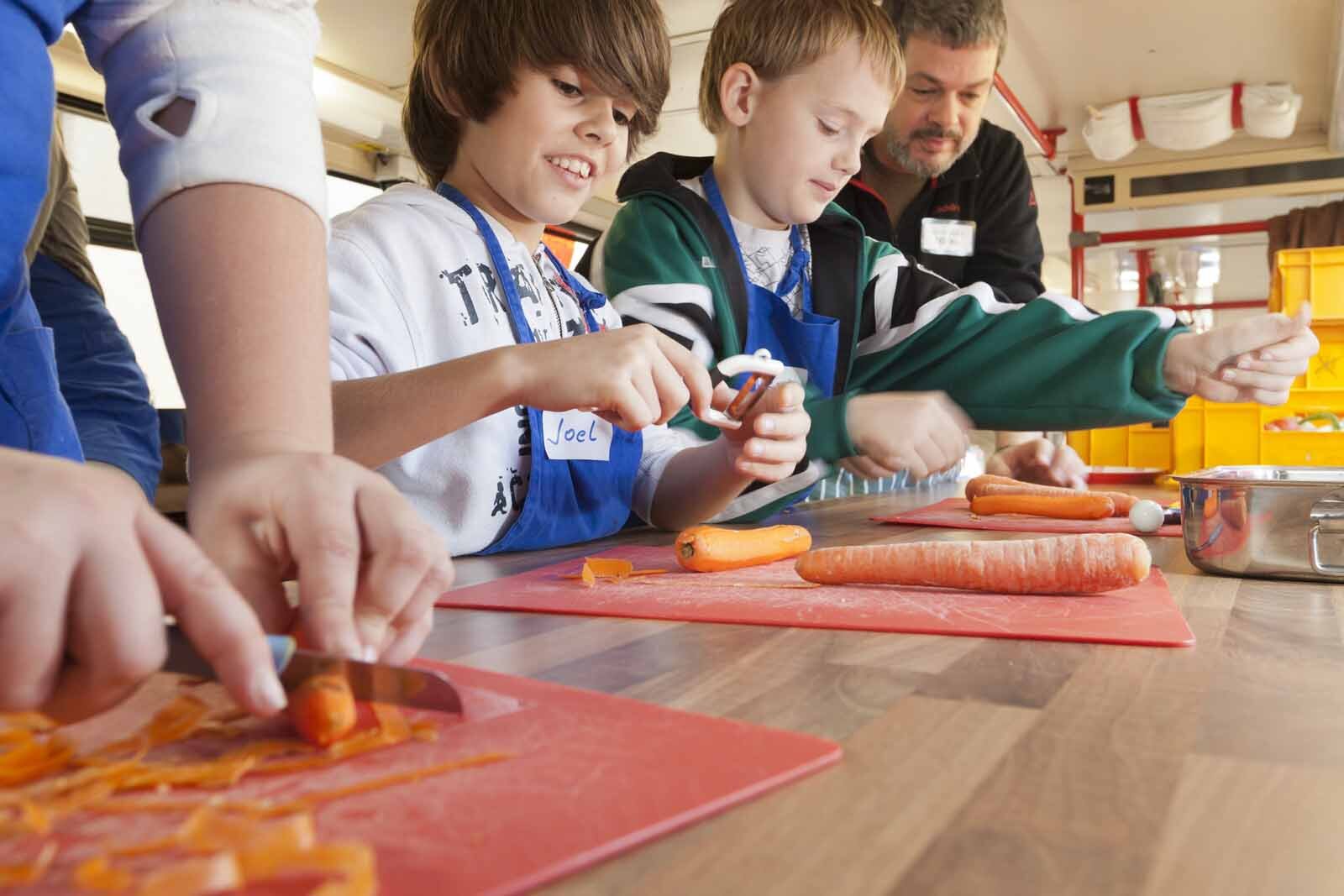Three Questions on Sustainable Development:
Goal 2 – Zero Hunger
We spoke with Sabine Werth of Berliner Tafel e.V. about hunger in Berlin. Sabine is the founder and chairperson of the non-profit organization which has been distributing food to those in need since it was founded in 1993. With the support of over 2700 volunteers, their work is essential as many Berliners of all ages lack money for quality groceries.
1014: Looking at the Sustainable Development Goal “Zero Hunger”, do you find that people in the German capital do not have enough money to buy food for themselves and their families?
Sabine Werth: Many people in Berlin cannot make ends meet. The money that they have at their disposal is not enough to cover a decent standard of living. For many Germans, this predicament leads to saving on food. We observe that singles tend to buy very little quantities of food, while families buy very cheap low-quality foods. Meat fills people up faster than vegetables, so the cheap pork neck steak is bought more than the comparatively much more expensive vegetables – with ripple effects on health, well - being and climate.
Especially elderly people often feel the need to save when going food shopping because they have extra burdens like medical bills or gifts for their grandchildren. Children often go to school hungry and do not have any packed lunches with them. This is especially disheartening, because children born into poverty have little opportunity to improve their own situation. Therefore, it is important that free food is available in the daycare centers and schools.
What does your typical workday look like at the Berliner Tafel?
Around 8:00 am in the morning, our 16 vans head to the local markets and stores that give away their unsold products – fruit, vegetables, and other perishables. They return with their load to our warehouse where we sort through and repack the items. Starting around noon, these items are distributed. Some are driven to the 300 social institutions that make breakfast, lunch, and dinner or cook together with their clients. And some are picked up at our warehouse by representatives of distribution centers. Through these social institutions and 45 distribution centers we reach about 125,000 people in Berlin every month.
To help improve our society, we developed a program called KIMBA 10 years ago. Here, we teach children and young people about nutrition and the preparation of small meals. We offer this program to all children regardless of the financial circumstances they grow up in.
One of our goals is to fight against food waste. We would like to raise awareness of what people eat and how consumption can be improved. We rely on a total of about 2700 volunteers for our work, and we are financed exclusively by donations and membership fees. We deliberately do not apply for public funds so that we can maintain our independence and not take away from other organizations. Therefore, we appreciate the many small donations as well as the larger sums that we receive from time to time.
In an ideal world, what would you wish for in your community and beyond with regard to achieving the U.N. goal of eliminating hunger?
There is enough food for everyone worldwide. It is a question of redistribution and distributive justice as well as support for local markets. It is not acceptable to me that rich countries increase their wealth at the expense of poor countries. If, for example, European laws allow that meat, fruit, vegetables etc. are produced in excess in Europe, they should not be shipped and sold to Africa crushing the local markets there. I would also like us to be more conscious about our resources when it comes to our eating habits. Conscious renunciation should be the new attitude towards life for all those who live in prosperity! It would be very helpful to think about our consumption habits from time to time!
Find out more about the work of Sabine Werth and Berliner Tafel e.V. on their website (in German).
If you want to help them support people in need, here is their contact for donations or to volunteer.





